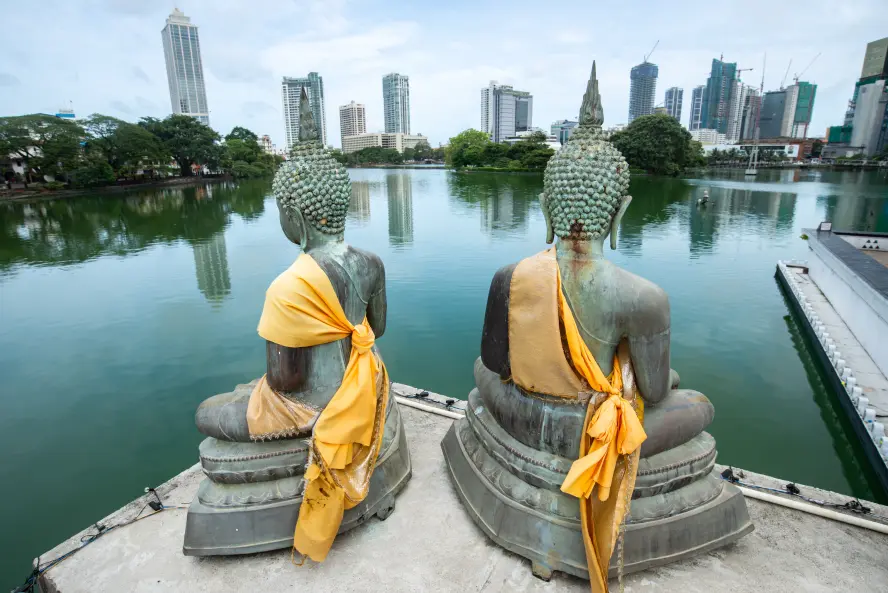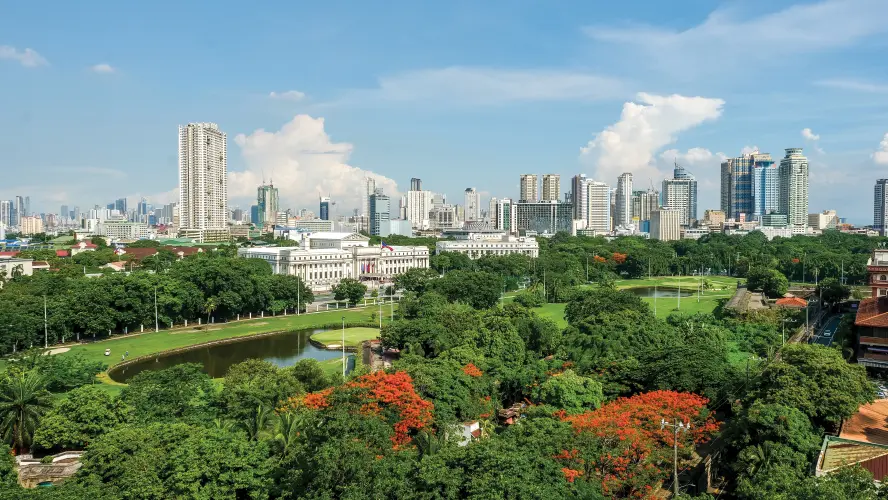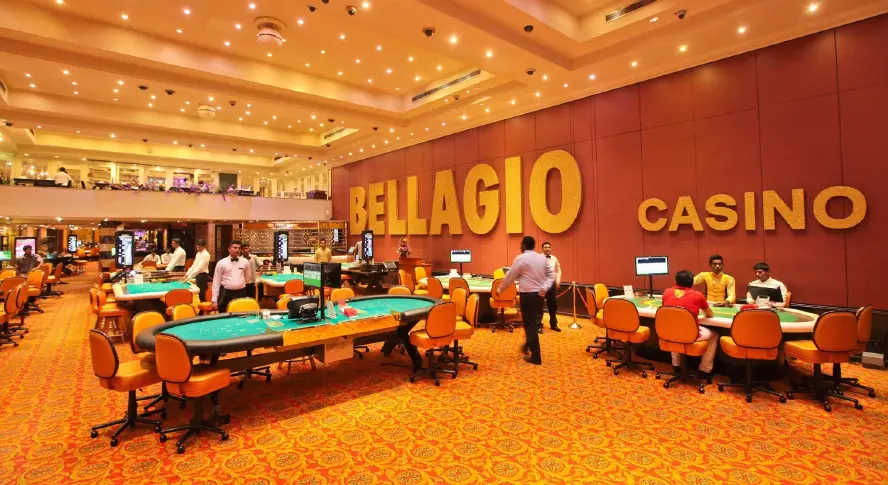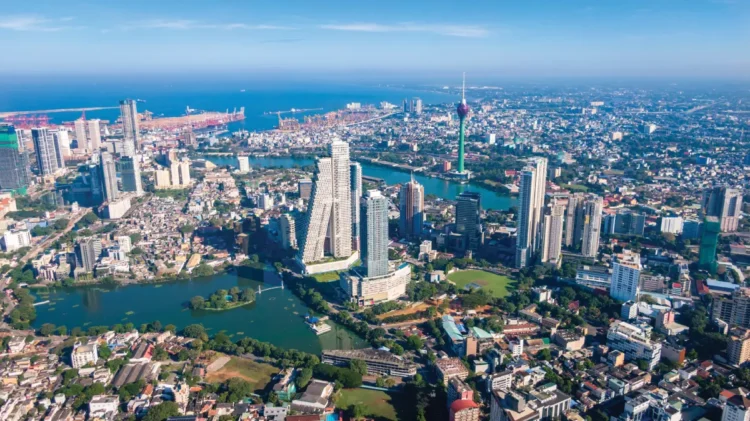Industry veteran Shaun McCamley delves into the complex history of Sri Lanka’s casino industry at a time when the country is slowly but surely making moves to establish a genuine regulatory framework.
Sri Lanka’s casino industry has a vibrant yet contentious history, closely linked to the country’s political landscape, economic growth, and tourism strategies. Casinos started emerging in Colombo during the late 1970s and early 1980s, mainly targeting foreign visitors. Unlike many of its regional counterparts, Sri Lanka did not establish a formal casino licensing framework. Instead, operators were granted “entertainment licenses” under the Betting and Gaming Levy Act of 1988. This created a legal grey area that allowed casinos to flourish, but it lacked a solid regulatory framework and the clarity needed to entice institutional investors.
 Despite these challenges, Colombo emerged as a modest casino hub, featuring several venues – including Bally’s, Bellagio and Marina – that provided table games, slot machines and entertainment options. Most of these establishments primarily attracted high rollers from nearby regions such as India, China and Southeast Asia. However, frequent regulatory uncertainties, political resistance and public opposition to gambling significantly hampered the sector’s growth. A 2013 initiative aimed at formalizing the industry and drawing in integrated resort investments – similar to those in Singapore and Macau – came to a halt after a change in government derailed plans by Crown Resorts and John Keells Holdings. As a result, Sri Lanka’s casino sector has remained relatively small, under-regulated and mostly informal, failing to fully leverage its tourism potential.
Despite these challenges, Colombo emerged as a modest casino hub, featuring several venues – including Bally’s, Bellagio and Marina – that provided table games, slot machines and entertainment options. Most of these establishments primarily attracted high rollers from nearby regions such as India, China and Southeast Asia. However, frequent regulatory uncertainties, political resistance and public opposition to gambling significantly hampered the sector’s growth. A 2013 initiative aimed at formalizing the industry and drawing in integrated resort investments – similar to those in Singapore and Macau – came to a halt after a change in government derailed plans by Crown Resorts and John Keells Holdings. As a result, Sri Lanka’s casino sector has remained relatively small, under-regulated and mostly informal, failing to fully leverage its tourism potential.
Regulatory roadblocks and missed opportunities
One of the major challenges facing the Sri Lankan gaming industry has been the lack of a cohesive and transparent gaming law. Operators have been eager for clarity regarding tax rates, licensing fees and allowed gaming activities. However, successive governments have fluctuated between promoting gaming as a means to boost tourism and revenue and resisting it due to moral and political objections. In 2021, the government took steps to finally legalize and regulate casinos within a formal framework, which included establishing a licensing system and proposing a 15% gaming levy on turnover. Unfortunately, the implementation process has been sluggish, leaving full operational clarity still out of reach.
 This ongoing regulatory inconsistency has caused Sri Lanka to lose its competitive edge in Asia’s thriving gaming market. While neighboring countries like the Philippines, Vietnam and Cambodia have wholeheartedly embraced gaming by offering licensing structures, tax incentives and strategies for online expansion, Sri Lanka has found itself on the sidelines, missing out on billions in potential foreign investment, tax revenue and job creation.
This ongoing regulatory inconsistency has caused Sri Lanka to lose its competitive edge in Asia’s thriving gaming market. While neighboring countries like the Philippines, Vietnam and Cambodia have wholeheartedly embraced gaming by offering licensing structures, tax incentives and strategies for online expansion, Sri Lanka has found itself on the sidelines, missing out on billions in potential foreign investment, tax revenue and job creation.
The future of brick-and-mortar gaming
Nonetheless, Sri Lanka still holds untapped potential. Its strategic location, English-speaking workforce and world-class tourism offerings make it a viable candidate for a regional gaming hub – if the government can deliver a transparent, investment-friendly regulatory framework.
Several key opportunities exist, as outlined below, yet these gains will only materialise if the government delivers a coherent legal framework and enforces it consistently – without backtracking due to political turnover.
Resort-Integrated Gaming
If properly licensed and regulated, Colombo and key coastal areas could attract integrated resort developments catering to the Indian and Middle Eastern markets, offering a blend of gaming, luxury hospitality and entertainment.
Inbound Tourism Synergy
Casinos can complement Sri Lanka’s broader tourism push, particularly in the post-COVID recovery phase, by offering high-end attractions that appeal to both regional and Western tourists.
Job Creation and Economic Recovery
A formalized gaming industry could generate significant employment across hospitality, IT, security and tourism services, while contributing substantial tax revenue.
 Online gaming: A blocked channel with latent potential
Online gaming: A blocked channel with latent potential
Online gaming is experiencing rapid growth worldwide, making it one of the fastest-expanding sectors in the entertainment industry. In Asia, countries like India and the Philippines are witnessing remarkable growth in online casinos, sports betting and casual gaming. This surge is largely fueled by the rise of mobile technology, improved digital payment options and increasing consumer interest.
In contrast, Sri Lanka is lagging behind in this digital shift. Current regulations prohibit online gambling, and local internet service providers are instructed to block access to international casino and betting websites. While some foreign operators have historically allowed Sri Lankan players to use offshore platforms, local businesses are not permitted to offer real-money online gaming services.
 This legal restriction creates a significant gap in the market. As Sri Lankan consumers become more digitally inclined, and amidst the uncertainty in regional tourism, the absence of online gaming options limits both revenue opportunities and user engagement. Moreover, it forces players to turn to unregulated offshore sites, which offer no consumer protections and provide no tax benefits to the country.
This legal restriction creates a significant gap in the market. As Sri Lankan consumers become more digitally inclined, and amidst the uncertainty in regional tourism, the absence of online gaming options limits both revenue opportunities and user engagement. Moreover, it forces players to turn to unregulated offshore sites, which offer no consumer protections and provide no tax benefits to the country.
If Sri Lanka is to modernize its gaming landscape, policymakers must consider controlled legalization of online gaming. This could include tightly regulated licenses for online casinos, sportsbook operators and even skill-based games – similar to the “PIGO” model used in the Philippines.
 The rise of social gaming: A strategic alternative
The rise of social gaming: A strategic alternative
In the absence of legal real-money online gaming, one digital avenue remains fully accessible and rapidly growing: social gaming.
Social gaming platforms offer free-to-play games that simulate real casino experiences and have gained significant popularity worldwide. They do not involve cash wagering or payouts, allowing them to bypass gambling restrictions in most jurisdictions. Instead, revenue is generated through in-app purchases (IAPs), such as virtual chips, cosmetic items or exclusive features. Players stay engaged through leaderboards, missions and social interactions, rather than financial incentives.
 For Sri Lankan operators, social gaming offers a low-risk, high-engagement digital model with several advantages:
For Sri Lankan operators, social gaming offers a low-risk, high-engagement digital model with several advantages:
1. Legality and Accessibility:Social gaming platforms are not considered gambling under Sri Lankan law, allowing them to operate fully within the country. Operators can target both domestic and international audiences without fear of enforcement action.2. Player Engagement and Data Insights:Social platforms foster long-term engagement and loyalty. Operators can study player behavior, test new features and gather valuable data, preparing for a future transition to real-money gaming should regulations change.
3. Monetization Without Regulation:
Through virtual goods, operators can monetize without crossing legal boundaries. Some global social gaming platforms have annual revenues in the hundreds of millions, even billions, without offering real-money payouts.
4. Brand Extension and Market Testing:
Land-based operators can utilize social gaming to expand their online presence, foster loyalty programs and maintain customer interest during periods of tourism lulls or property closures. It’s also a perfect testbed for international expansion without the compliance burden.
5. Appeal to the Mobile Generation:
With smartphone penetration in Sri Lanka over 60%, and rising fast among younger demographics, social gaming is ideally positioned to attract a new generation of casual players, particularly those wary of traditional gambling.
Time to evolve or risk obsolescence
Sri Lanka’s casino industry sits at a crossroads. Decades of informal operation, unclear regulation and missed investment have left it lagging behind regional competitors. The opportunity to develop a vibrant, tourism-driven gaming sector remains – but only if the government enacts and enforces clear, modern laws.
 Meanwhile, the online channel – both regulated real-money gaming and legally compliant social gaming – offers new pathways to relevance and revenue. Until such time as online casinos are legalized, social gaming platforms provide the most viable route for Sri Lankan operators to go digital, engage users and build sustainable brand ecosystems.
Meanwhile, the online channel – both regulated real-money gaming and legally compliant social gaming – offers new pathways to relevance and revenue. Until such time as online casinos are legalized, social gaming platforms provide the most viable route for Sri Lankan operators to go digital, engage users and build sustainable brand ecosystems.
In today’s competitive Asian gaming landscape, waiting is no longer a strategy. Those who adapt – whether through integrated resorts, online transitions or social-first platforms – will define the future of Sri Lankan gaming. Those who don’t may find themselves permanently left behind.






























